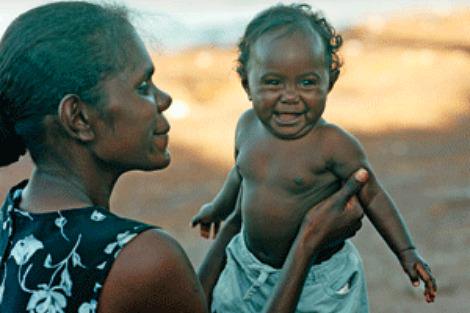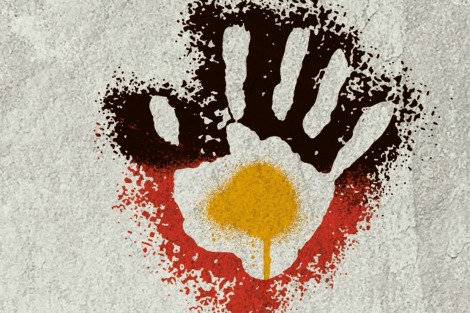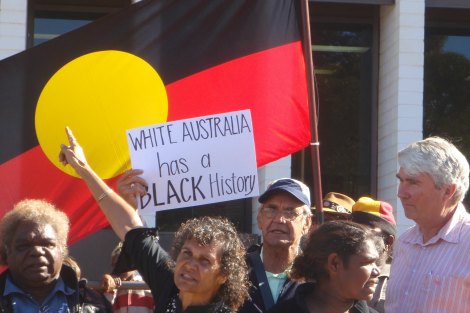Keywords: Indigenous Voice To Parliament
-

AUSTRALIA
- Myrna Tonkinson
- 16 February 2016
3 Comments
Last week, Malcolm Turnbull presented the eighth annual Prime Minister's Report on the government's Close the Gap campaign. The Close the Gap Campaign steering committee also released its 2016 progress and priorities report. While the reports identify modest gains, overall the gaps remain wide the words 'target not met' recur throughout. The results are disheartening but should strengthen the resolve of all concerned to set realistic goals, with consultation at local levels.
READ MORE 
-

AUSTRALIA
- Frank Brennan
- 10 December 2015
I first met this Tony on my regular visits here to Darwin when he was working at the North Australian Aboriginal Legal Aid Service and then when he set up the mediation services under the auspices of Anglicare. In later years I knew him when he was your Anti-Discrimination Commissioner. He was a quiet, considered, gentle, strong and principled man. On Human Rights Day, it is only fitting that I honour Tony by offering some reflections on the architecture for human rights in Australia, on the contemporary human rights controversies, and on the way forward for better protection of the human rights of Aborigines and asylum seekers, two marginalised groups who had a special claim on Tony's sympathies.
READ MORE
-

AUSTRALIA
- Frank Brennan
- 16 October 2015
2 Comments
I acknowledge those Aborigines and Torres Strait Islanders who insist that they have never ceded their sovereignty to the rest of us. I join with those Aborigines and Torres Strait Islanders who hope for better days when they are recognised in the Australian Constitution. As an advocate for modest constitutional recognition for Indigenous Australians, I respect those Aborigines and Torres Strait Islanders who question the utility of such recognition. But I do take heart from President Obama's line in his Charleston eulogy for the late Reverend Clementa C. Pinckney: 'Justice grows out of recognition'.
READ MORE
-

- Frank Brennan
- 18 September 2015
Pope Francis's concerns are not narrowly dogmatic or pedagogical but universally pastoral. He knows that millions of people, including erstwhile Catholics, are now suspicious of or not helped by notions of tradition, authority, ritual and community when it comes to their own spiritual growth which is now more individual and eclectic. He wants to step beyond the Church's perceived lack of authenticity and its moral focus on individual matters, more often than not, sexual. He thinks the world is in a mess particularly with the state of the planet — climate change, loss of biodiversity and water shortages, but also with the oppression of the poor whose life basics are not assured by the operation of the free market, and with the clutter and violence of lives which are cheated the opportunity for interior peace. He is going to great pains to demystify his office. He wants all people of good will to emulate him and to be both joyful and troubled as they wrestle with the probl
READ MORE
-

- Greg O'Kelly
- 01 July 2015
3 Comments
The phrase 'the public square' is peppered throughout Frank Brennan's work. The 1988 film Cinema Paradiso depicts the public square in a Sicilian village over 30 or so years, and its slow and subtle change from a place where human beings gather to laugh, play and discuss. Billboards and garish signs appear and it becomes a car park bereft of its humanity.
READ MORE
-

AUSTRALIA
- Frank Brennan
- 22 June 2015
4 Comments
Walking towards the courthouse, I heard a cry, 'Hey, Father Frank, over here! You've got to support us mob.' I was torn. I was chairing a national consultation at the request of the Commonwealth Government. I did not want to politicise our presence in town. But then again, I did not want to abandon Ben and his colleagues in their hour of need. They all stood in front of an Aboriginal flag. Some were crying out for justice for their deceased loved one.
READ MORE
-

- Michael Elligate
- 10 June 2015
'The Institutional Church has so often taken smug refuge in pushing the need for an informed conscience. However this does not certainly mean personal freedom must bow to the stand of the establishment. The rights of partners to be honest in their own sexual matters is given due place in this new book.' Fr Michael Elligate launches Fr Frank Brennan SJ's book Amplifying That Still, Small Voice at Newman College, Melbourne, 5 June 2015.
READ MORE
-

- Kristina Keneally
- 04 June 2015
12 Comments
'As a legislator and a Catholic, I often felt gratitude for Frank Brennan's ambassadorship from the republic of conscience. I found the need to weave, this need to take 'data points' from many places and form my conscience. I regarded Frank as a bit of a hero.' Kristina Keneally launches Fr Frank Brennan SJ's book Amplifying That Still, Small Voice at Our Lady of the Way Parish, North Sydney, 2 June 2015.
READ MORE
-

AUSTRALIA
- Frank Brennan
- 28 May 2015
5 Comments
We gather on the 48th anniversary of the 1967 referendum. All major political parties to an agreed referendum question when going into the next federal election, with the understanding that the new government and the new parliament would proceed to put a referendum to the people, perhaps on Saturday 27 May 2017, the fiftieth anniversary of the successful 1967 referendum.
READ MORE
-

AUSTRALIA
- Frank Brennan
- 11 April 2014
1 Comment
'Whether or not we have a bill of rights, much of our human rights jurisprudence remains partial, failing to extend rights equally to all. Once we investigate much of the contemporary discussion about human rights, we find that often the intended recipients of rights do not include all human beings but only those with certain capacities or those who share sufficient common attributes with the decision makers. It is always at the edges that there is real work for human rights discourse to do.' Frank Brennan's Blackfriars Lecture
READ MORE
-

AUSTRALIA
- Frank Brennan
- 11 April 2014
8 Comments
'We should abandon talk of taking Australia off the table. We should also abandon talk of taking the sugar off the table. The collateral damage of that is too great. The best we can do ethically and practically is to put the sugar out of reach while leaving it on the table for those who make it here with a visa or in direct flight from persecution.' Frank Brennan contributes to a Palm Sunday panel at St Michael's Uniting Church, Melbourne.
READ MORE
-

AUSTRALIA
- John Warhurst
- 01 April 2014
6 Comments
In a party in which conservatives are dominant, life is rarely easy for centrist Liberals. They are a cultural minority within their own party and can be criticised for rocking the boat when their party is on a roll. Those who are further to the left, including Labor and the Greens, should not just hope that the Liberal Left is heard loud and clear, but they should respect and nurture this strand of liberalism.
READ MORE 